‘Majali decides to resign from parliament’
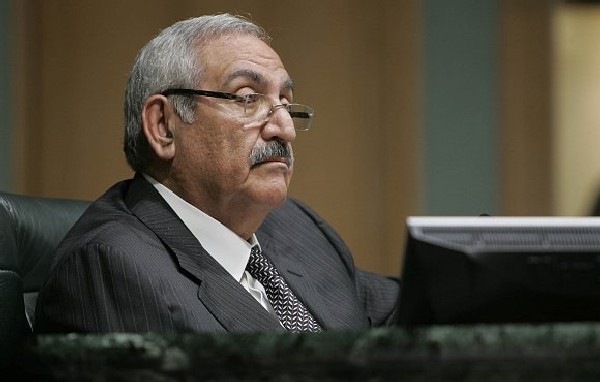
Khaled Neimat, The Jordan Times
AMMAN — Veteran MP and former Lower House speaker Abdul Hadi Majali on Saturday decided to resign from the Lower House, according to a key member of his National Current Party (NCP).
The decision came after a meeting of the party’s executive office, in which the party decided that no national list member would accept to replace Majali, according to party member Haya Qaralleh.
Qaralleh, also a former MP and minister, said the decision came in light of the recent legislative polls, in which Majali’s 27-member ticket secured only one seat at the national district level that went to its top man.
The resignation of any MP must be accepted by House members first, according to Article 72 of the Constitution, which stipulates that “any deputy may resign his seat by notifying the Speaker of the Chamber of Deputies in writing, and the Speaker shall place the resignation before the Chamber for a decision as to whether the resignation should be accepted or rejected”.
The new parliament is scheduled to convene for an extraordinary session on February 10; therefore, Majali’s resignation will not go into effect before that date.
But his resignation triggered a legal controversy.
According to Paragraph A of Article 58 of the 2012 Elections Law, a member from the same national ticket shall fill the vacant seat.
But in the case of Majali, the NCP will not allow any of its national ticket candidates to join parliament; hence, the next winning ticket, the Salvation list, is expected to obtain the seat instead, to be its second in the 17th Lower House.
But Independent Elections Commission (IEC) Spokesperson Hussein Bani Hani said the issue is more complicated, citing differences in interpreting the said article among concerned officials.
Some officials, he said, believe that the seat should go to number one nominee in the ticket that won no seat but had the highest votes.
Bani Hani said the issue will be forwarded to the Opinion and Legislation Bureau at the Prime Ministry, whose task is to interpret laws.
The NCP also decided to close all its offices in the Kingdom’s governorates but keep its headquarters in Amman. The decision was taken after the executive office rejected a proposal to dissolve the party.
Meanwhile, in reaction to alleged irregularities in the January 23 elections, four political parties on Saturday decided to escalate their moves against what they claimed was “interference in the polls’ outcome”.
The four leftist and nationalist parties, which fielded candidates on the Democratic Renaissance national ticket, called for “popular courts” to uncover any tampering that affects the Kingdom’s political life.
The ticket, led by former MP Abla Abu Olbeh, who is secretary general of the Jordanian Democratic People’s Party (Hashed), had filed a complaint against the preliminary election results which did not give her ticket any seats.
In response to her request, the IEC recounted the votes for her list and the Citizenship list, led by Hazem Qashou, in the presence of international and local observers.
After the recount, the IEC gave Qashou’s seat to Abu Olbeh.
But after a second review of all national list votes, the IEC annulled its decision and gave the seat back to Qashou.
In addition to Hashed, the ticket included candidates from the Arab Socialist Baath Party, the Arab Progressive Baath Party and the National Movement for Direct Democracy.
At a press conference on Saturday, Abu Olbeh questioned the second recount of votes, wondering why the IEC reviewed the results in the absence of any observers.
Also in reaction to the elections outcome, the Islamic Action Front (IAF), the political arm of the Muslim Brotherhood, alleged the 2013 polls were a “failure”, and were “forged”.
In remarks during a shura council meeting, the party described the recent parliamentary elections as the “worst in the country’s history”.
“The regime lacks the serious will to carry out the reform that people have been calling for in the past two years,” Ali Abul Sukkar, president of the IAF’s shura council said.
IAF Secretary General Hamzah Mansour agreed with Abul Sukkar, charging that “certain powers” were working against reform and imposing their will on decision makers.
He noted that the decision to boycott the polls was a “correct” one that increased the people’s trust in the party and its mission.
Latest News
-
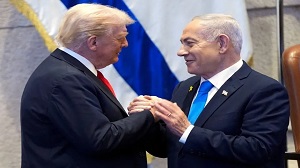 Netanyahu to Meet Trump on December 29
Netanyahu to Meet Trump on December 29
-
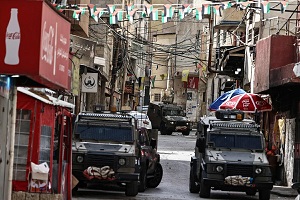 Hamas says no Gaza truce second phase while Israel 'continues violations'
Hamas says no Gaza truce second phase while Israel 'continues violations'
-
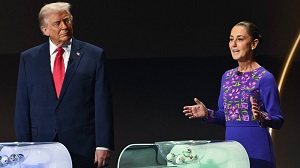 Trump threatens Mexico with fresh tariffs over water dispute
Trump threatens Mexico with fresh tariffs over water dispute
-
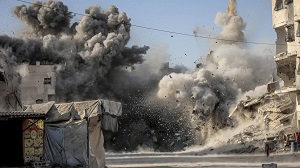 'Israeli' forces commit 738 ceasefire violations in Gaza in 60 days
'Israeli' forces commit 738 ceasefire violations in Gaza in 60 days
-
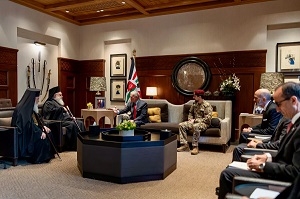 King stresses importance of preserving Christian presence in Middle East
King stresses importance of preserving Christian presence in Middle East